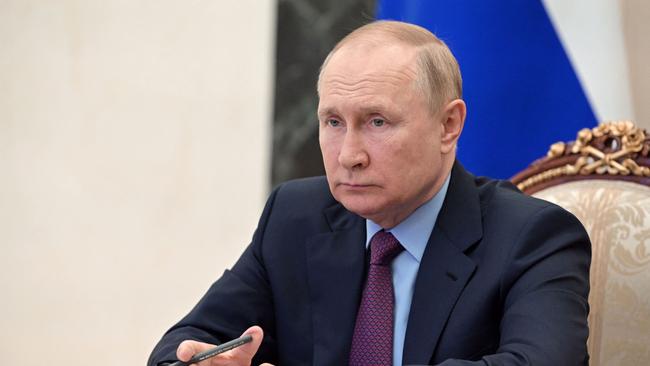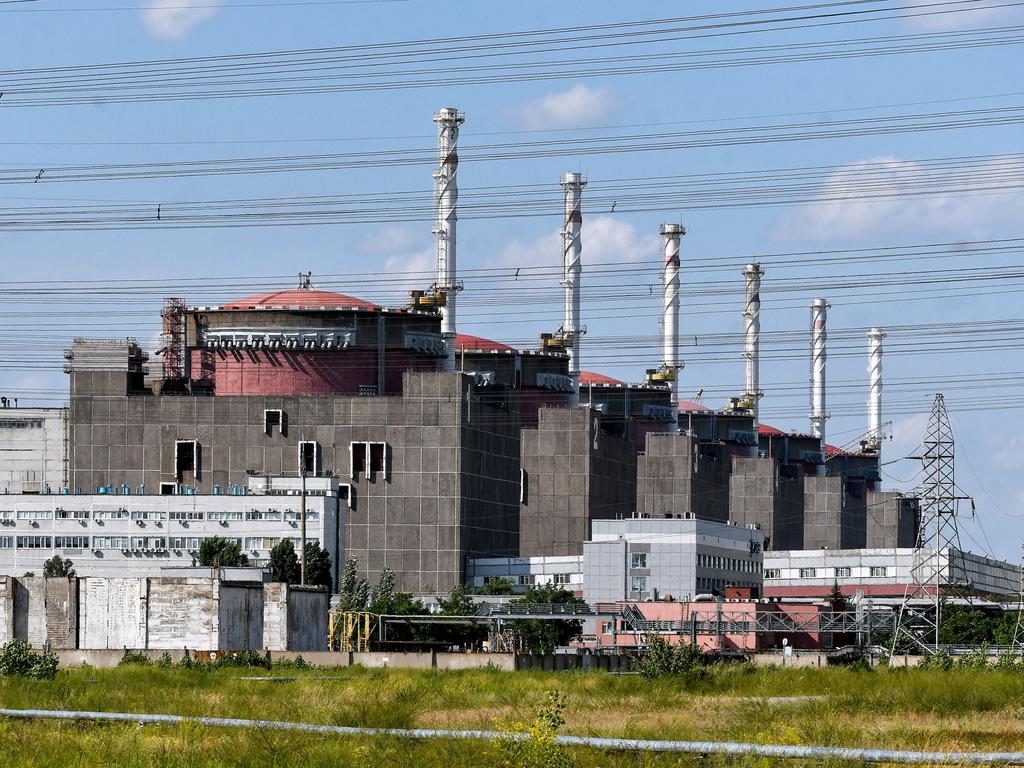It suits Vladimir Putin if our interest in Ukraine fades
A hard winter will test the West’s resolve but leaders must explain that sacrifices are needed so that evil does not prevail.

On Saturday, the head of the International Atomic Energy Agency warned of “the very real risk of a nuclear disaster”. Shelling around the Zaporizhzhya nuclear power plant in Ukraine, which has six reactors, was “playing with fire, with potentially catastrophic consequences”. President Zelensky called for sanctions on Russia’s nuclear industry as evidence mounted that Russians were firing rockets from inside or near the plant and storing explosives around it.
But did the world reverberate immediately with outrage at Russian tactics that abjure every norm and standard of national and global responsibility? Were emergency meetings convened at the UN, or of the G7, considering Zelensky’s request? Did citizens of European countries find reports of this potential disaster that could affect them all dominating their television news? Not really. As the IAEA statement was being issued, someone observed to me at a social event on Saturday night that “you don’t hear much about the war now, do you?”.
That question highlights the weak spot in the western world. We have responded with commendable strength to the invasion of a peaceful country but might slowly lose interest while 40 million people on the same continent fight for their existence as a nation. In recent weeks, many photos have emerged of Moscow’s use of widely outlawed weapons, such as cluster bombs.
In #Zelensky’s latest address on Sunday evening, August 7, the Ukrainian President paid tribute to #Ukraine’s Air Force, his communication with the President of the European Council, and provided a general update on the ongoing Russian invasion. https://t.co/ET9I4Z4U7p
— KyivPost (@KyivPost) August 8, 2022
The UN has said that evidence of Russia’s use of indiscriminate attacks on civilian areas has become “indisputable”. Human Rights Watch has documented how Russia has “tortured, unlawfully detained and forcibly disappeared civilians” in Kherson. Russian state media has openly called for Ukrainians who won’t co-operate with them to be sent to labour camps or shot.
Putin’s “special military operation” is characterised by pure evil. Hospitals, medical facilities, shopping centres, theatres filled with people taking shelter – all have been deliberately targeted. Yet he can hope that this ceases to be news, as he plays with the gas supplies of Europe and sends prices ever higher. Westerners, he has noticed, can be self-obsessed and short-termist. The Taliban rule of Afghanistan testifies to our notoriously short attention span. If he projects strength, certainty and endurance – the legendary endurance of Russians defeating the Nazis – he thinks we might buckle.
The combined GDP of the G7 countries is 25 times greater than that of Russia and we dominate the world’s finance and much of its technology. If we remain resolute, Putin cannot win in the longer term. His economy has already lost some 300,000 tech workers and will steadily lose the vast revenues from gas sales to the EU. Sanctions on components mean he can’t build new, modern tanks to replace the huge numbers now destroyed. But he knows how we can be made to lose heart; how sensitive democracies are to economic downturns.
Already Italy’s best government in many years has collapsed and elections may bring the far right to power. France is enfeebled by a minority government, German leadership sounds uncertain and Britain is distracted by choosing a new leader. In America, the midterms and Trump are looming. There must be a chance, Putin will calculate, of turning us from our united, outraged, resourceful best to our divided, apathetic, please-give-us-a-break worst. He can hope that high energy prices, a sharp recession and political weakness will break the resolve of western capitals to bankroll the Ukrainian economy and intensify their military assistance to Kyiv.
Putin’s greatest weakness is that this hope is, increasingly, all he has left. The Russian armed forces’ conduct of the war may be evil but it has not been successful. Massed artillery has eventually given them control of Luhansk but they are still far from seizing all of Donetsk, the other key part of the Donbas. While one-sided referendums are being planned for September in conquered areas, those areas are neither as extensive nor as secure as Putin will have hoped, even on the less ambitious plans adopted since the wider invasion in February failed. In recent weeks, the arrival of Himars rocket launchers from the US has brought devastation to Russian ammunition dumps, supply lines and command centres.

There are two current signs of major problems for the Russian military. One is the apparent diversion of their troops from their offensive in the east to protect the increasingly exposed position of their forces west of the Dnipro and around Kherson, in anticipation of a Ukrainian counteroffensive. The other is repeated dismissal of senior generals, now apparently including Aleksandr Dvornikov, who was meant to be in overall command. This is on top of huge losses of men and equipment, low morale and great difficulties in recruitment.
It is therefore no time for the West to lose heart. Thanks to our help, millions of Ukrainians have so far shown extraordinary fortitude in defending their freedom and vast numbers have fought bravely against aggression. They will need even more assistance in the coming months with weapons and supplies.
Britain has been in the forefront, but many could do more, particularly France and Germany, and non-NATO countries with Soviet-era equipment, such as South Korea. Ukraine needs more rocket launchers and more specialised weapons to stay ahead of an evolving battlefield: as the Russians jam the transmissions of drones spotting their positions, for example, the Ukrainians will need so-called loitering munitions that home in on the jammers.
In this test of will and endurance western governments should adopt a galvanised political strategy at home and abroad, with three parts to it. First, an intensive diplomatic campaign is needed in much of the global south. Sergey Lavrov, Putin’s foreign minister, recently toured Africa giving every false impression that Russia had been under threat from NATO and that western sanctions restricted grain shipments. The West needs a co-ordinated global push to explain the realities of Putin’s aggression and atrocities, through high-level visits and social media.
Second, western leaders will have to do more to prepare their own voters for a tough period ahead, explaining why it matters to show that war does not pay, that international law is upheld, that tyranny does not triumph, and how the effort to show that is far from hopeless. They should explain that Putin’s main hope now is that we are weak or lack resolve.
Third, their domestic economic policies will need to be designed to maintain public confidence that sacrifices are fairly shared. Financial support for households will need to be focused on direct help for people struggling with energy costs rather than used up in wider tax cuts – contenders for prime minister please note.
And through the coming months, we all need to maintain our outrage that towns are shelled indiscriminately, that rape and violence are used systematically, that a nuclear disaster is risked deliberately, and not let our attention wander from the immensity of what is at stake.
The Times






To join the conversation, please log in. Don't have an account? Register
Join the conversation, you are commenting as Logout